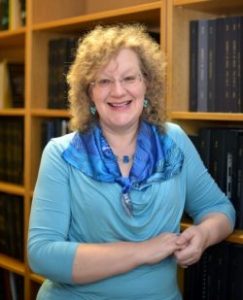
Professor Stephanie Snow, Academic Lead for Community Engagement and Involvement, Discusses the Past, Present and Future of PPIE
Blog written by Georgia Taylor MSc Science Communication student.
 In this blog, we interview Professor Stephanie Snow, Academic Lead for Community Engagement and Involvement, Faculty of Biology, Medicine and Health.
In this blog, we interview Professor Stephanie Snow, Academic Lead for Community Engagement and Involvement, Faculty of Biology, Medicine and Health.
Could you tell us about your experience of being involved in PPIE at the university?
I started researching the history of stroke particularly from the 1950s, when it was looked upon as a chronic disease or a condition of old age meaning there was no real treatment. It wasn’t till the 1990s when new treatments were introduced which allowed people to make a full recovery.
An opportunity arose in the faculty of life sciences, and I applied for science and arts funding. I thought it’d be interesting to think about this from the point of view that there is life before stroke and life after stroke – I’d read lots of stroke survivors’ stories who talked about this huge life changing event in this way.
Working with Stuart Allan, and Pippa Tyrrell, stroke consultant and the Stroke Association, we ran a series of creative workshops where stroke survivors could explore their own sense of self and how that had changed through their stroke. We commissioned artists to do collages and photography workshops, detailing their stroke journey. We even did a music session where they composed their own songs and performed in a pub in Manchester.
The Stroke Association and the stroke survivors were some of the best people I have ever worked with. The feedback we got was that the sessions had made a real difference as people started to think differently about themselves. There seemed to be so many benefits, which made me think about my research in a completely separate way, in a way that felt much fresher than if I had just been looking at it purely from an academic perspectives.
I’ve always been interested in thinking about individual voices and individual perspectives. When I was thinking about the history of the NHS, there were very few voices on record. So, you might get clinicians, decision makers, policy makers etc. but what about stroke survivors? What about people with mental health problems? What about special communities that looked after particular groups of people?
I received funding from the National Lottery Heritage Fund to set up a national program to create the first digital archive of NHS history through recording people’s voices. The NHS was created in 1948 so from a historical perspective, it is the most extraordinary lens to the wider history of post war social change. Change in science, change in medicine, change in technology, change in food. You could take any aspect of our lives and experiences and look at it through the frame of the NHS and see something that was new and interesting.
We worked in different localities, recruited public volunteers, and trained them in oral history. The NHS project was much more about participatory research, so involving members of the public alongside the research team meant there was a level playing field. This was a real shift from how you position people externally to an academic team which I think has been one of the real strengths. The archive we created is now deposited at the British Library as a permanent public resource.
We also collated Covid testimonies and our resource is now one of the largest health focus collections in the world – having 130 different people listed as interviewers. Only a handful of those are academics, the rest are our volunteers. It feels very exciting as an archive because there is diversity in the interviewing team which helped with the diversity of interviewees. If you’re part of a specific community, you trust members of that community much more than someone externally or from the university.
This helped us create a collection that is much broader than if the collection was collected by an academic team. I think there’s such a richness from thinking about how you can make research participatory in different ways, and bring together those different perspectives to really ensure that all the effort we put into research and the expertise and the funding that goes into it, is really focused on what people need and want across wider society.
Do your current projects differ in any way to your first few projects?
Every project is different, and I guess that’s the exciting thing about it. Despite your planning, and however much you’ve talked with people in advance, you never quite know how it’s going to work out until you start doing it. The most important aspect is to be responsive because you’re dealing with people. For the NHS 75 Community Advisory group we planned to listen to different voices from the archive, decide what perspectives were most important, and have graphic artists create an exhibition that would support the creative workshops running in the libraries.
In the second meeting, the group said they were keen for something to come out of this because this was important work. This led us to think, okay they don’t just want the artwork, they want something tangible representing their contribution and what they believe in. We then commissioned a writer to work with them to create a manifesto. You need to have the ability to adapt and think about what the communities want. How do they want to be involved? As researchers, we have our ideas, but it’s got to be 2-way and you need to be able to be responsive to what they want as well as achieving your own objectives.
What are you hoping for PPIE to become in the future?
My ideal for PPIE is that we should develop communities of learning. What I mean by that is academics and people with lived experience all come together and learn from each other to create a shared knowledge, ensuring you’ve got the balance between researcher perspectives and lived experiences views.
What patients think are the issues doesn’t always line up with what clinicians are interested in. If you can try and create these conversations and interplay between the different groups involved in these big questions and issues. Then it seems to me that this is what universities have got the power to do – to become the hub for creating these communities of learning. This would be my hope for the future.
Would you say that this is the main way that PPIE has changed since you first became involved?
PPIE has changed since I started. There is now a better understanding of what good practice means, which is especially helpful for researchers who are starting out. When I started, there were a few examples of resources available whereas within the Faculty we’ve developed a PPIE toolkit.
It’s great to see that the knowledge we’ve developed is now available in terms of resources. For example, financial compensation is now included in grants whereas before, it was on a volunteering basis which didn’t recognise the expertise being included from those contributors. Now there are clear systems and an infrastructure in place detailing the standards you need to be aiming for. I think that’s much more visible now, and accessible. There is also much more awareness of inclusiveness, diversity and hidden barriers.
To find out more about PPIE: watch our short film, sign up to the monthly Public Engagement Digest, visit the PPIE blog, follow @FBMH_SR, visit our PPIE Toolkit or contact srbmh@manchester.ac.uk.

0 Comments